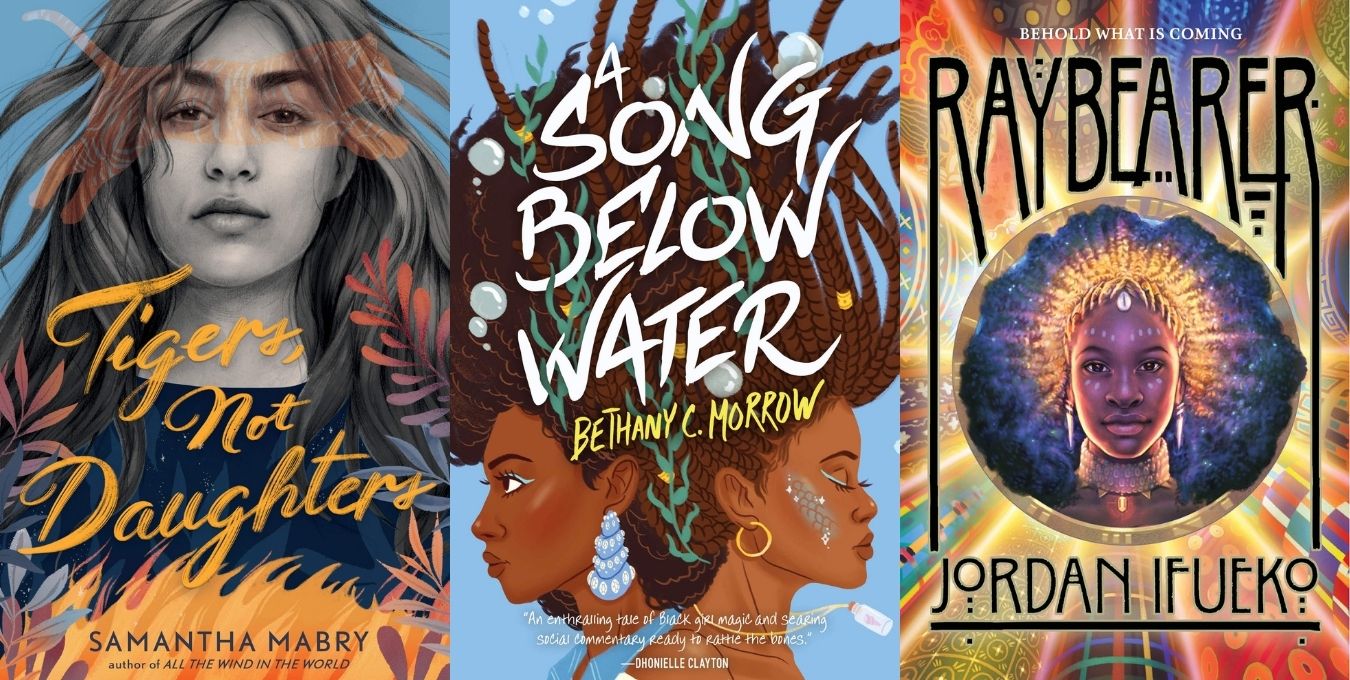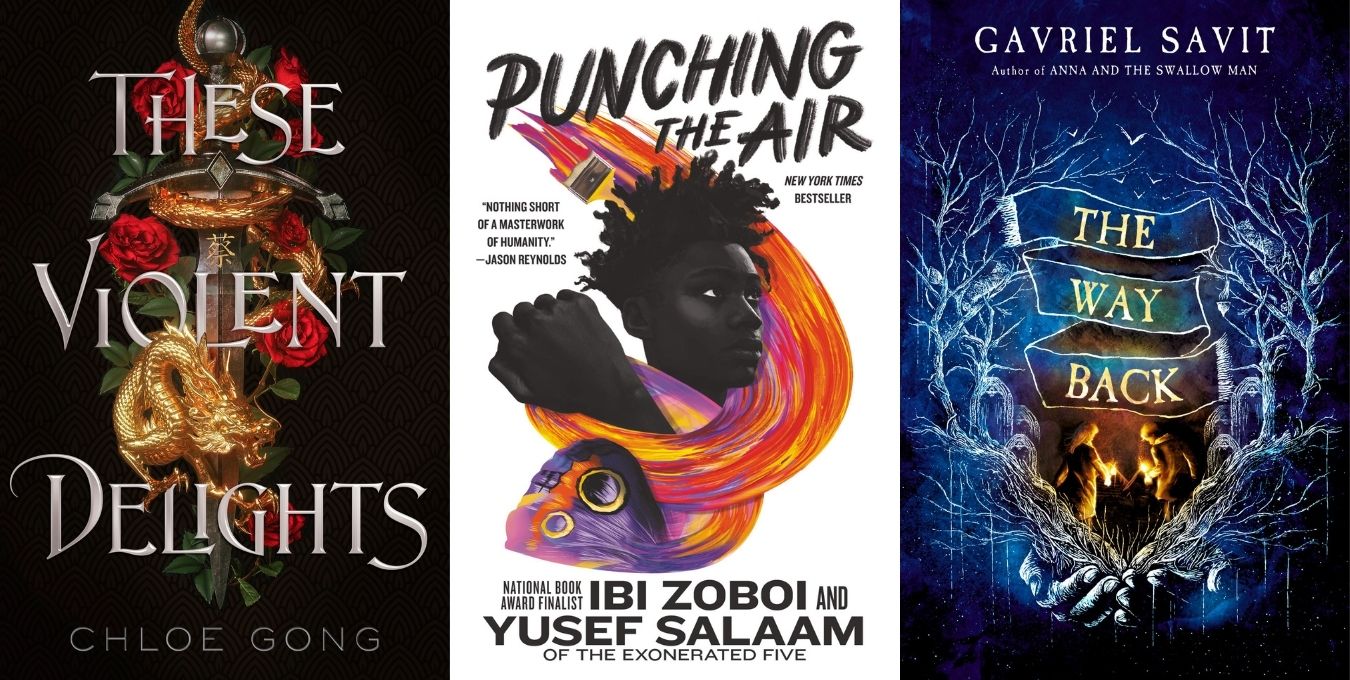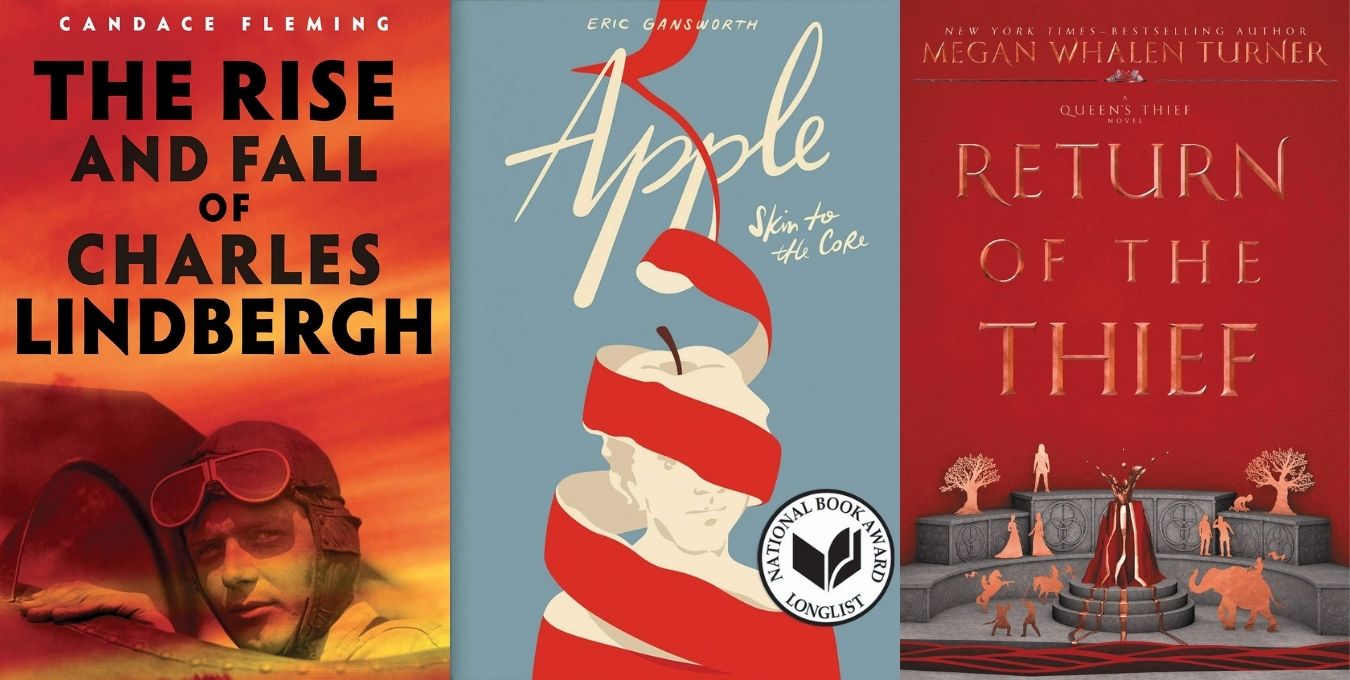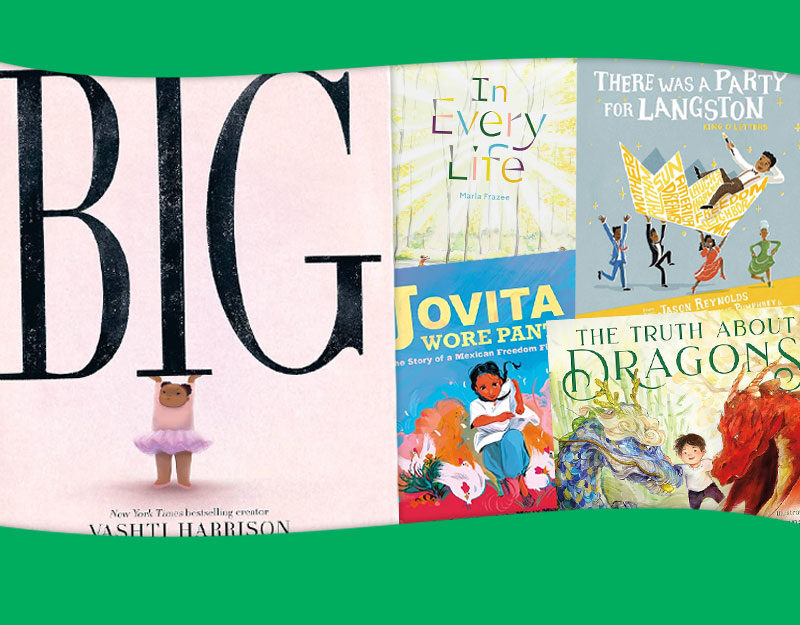The Many Meanings of Meilan Q&A with Andrea Wang
It’s Andrea Wang’s world and we’re just living in it.
It would be enough for most authors to have a picture book like WATERCRESS out in 2021. I mean, talk about an award contender. You’ve got Jason Chin’s art. A heartfelt story that doesn’t tug the heartstrings so much as it plays them like a cantina band. And then there are the rave (professional) reviews. So how nutty is it that this isn’t her only book out this year?
THE MANY MEANINGS OF MEILAN is the kind of middle grade novel unafraid to touch on those difficult issues little discussed in other titles. Check out this description:
Meilan Hua’s world is made up of a few key ingredients: her family’s beloved matriarch, Nai Nai; the bakery her family owns and runs in Boston’s Chinatown; and her favorite Chinese fairy tales. But after Nai Nai, passes, the family has a falling-out that sends Meilan, her parents, and her grieving grandfather on the road in search of a new home in Redbud, Ohio. In this predominantly white town, Meilan’s principal suggests that it would be easier for everyone if Meilan just told people her name was Melanie. In order to adapt to this new world, Meilan uses the many meanings of the Chinese characters that make up her name to create new selves. Sometimes her name means Mist – invisible at school – and other times it means Basket – filled to the brim with her parents hopes and expectations. And most reluctantly she is Melanie, a girl pretending to fit in. But when the school invites Vietnam Veterans to be honored in a special ceremony the principal assumes Meilan’s grandfather fought against the Americans, and he is disinvited from the ceremony. Finally, enough is enough, and Meilan has to stand up and demand that people respect her family, her heritage, and learn to say her name!
Andrea took to the time to talk with me a little about the book:
Betsy Bird: Hi Andrea! First off, I just want to thank you for taking the time to answer some of my questions. I was such a huge fan of your nonfiction picture book MAGIC RAMEN (which is a dangerous book to read on an empty stomach) to say nothing of this year’s buzzy WATERCRESS. Middle grade is an interesting next step. Was this a book you’d been hankering to write for a while or did it sneak up on you? What’s its origin story?
ADVERTISEMENT
ADVERTISEMENT

Andrea Wang: Hi Betsy! Thank you for having me on Fuse 8 – I’m excited to be here! I’m so happy to hear that you enjoyed MAGIC RAMEN and WATERCRESS! I joke that the books should come bundled with either instant ramen or a pack of tissues.
I actually started off writing middle grade instead of picture books. But writing novels is a long haul for me, so I would draft picture books whenever I got frustrated or stuck (which was often). It was a wonderful surprise when my picture books were acquired before my middle grade. My first middle grade manuscript didn’t get picked up and I had started working on a YA when my agent suggested I stick with picture books and middle grade instead of trying yet another category. She always gives me sound advice, so I started casting around for story ideas. I’d been wanting to write a book where Mandarin homophones played a part in the plot, and I’ve always loved stories about characters with secret identities or who adopted different personas for different situations. I remembered that my grandfather used to call me an endearment in Mandarin that means “little girl,” but I totally thought meant “little duck head” because a homophone of one of the words means “duck.” That got me thinking about the homophones of my own Chinese name, where the sound “yù” in Mandarin can either mean “fragrant” or “jade.” From there, the idea of a main character who creates different personas based on the different homophone meanings of her name took shape, and Meilan was born.
BB: Just from the plot description any reader can see that Meilan is facing a flurry of microaggressions and just out-and-out aggression from different sides. How much of your life imbued this book?

AW:So much of my life informed the characters and plot of THE MANY MEANINGS OF MEILAN. I grew up in a small, mostly white town in Ohio much like the fictional Redbud. It was a fairly progressive and liberal town…for the 70s. But as far as I can recall, I was the only Asian American student in my grade from the time I started preschool until after seventh grade, when my family moved to Boston. I encountered a lot of microaggressions at school and in the larger community, but never found the courage to stand up to it the way Meilan eventually does. Instead, I did what Meilan tries to do – become invisible.
My parents had to deal with their car being repeatedly keyed, being followed around in stores by “concerned” clerks, and having people pretend not to understand their English. Most of the incidents in MEILAN are fictional, but I did include a scene where a waitress “can’t understand” Meilan’s mother and Meilan ends up speaking for her. I think that’s a common occurrence for kids of immigrants – being put in the position of speaking for their parents or translating for them. So, while the book isn’t semi-autobiographical, I did draw on many of my own emotions and family dynamics for the characters and situations they find themselves in.
BB: Let’s talk code-switching. Picture books about Asian American kids and their names abound. I’m talking about the STILL very popular THE NAME JAR and MY NAME IS YOON, to name just a few. The idea of using your name to forge a new identity is very enticing to some. Can you talk a bit to me about the role of a name in a child’s life? What’s the difference between renaming yourself and having someone forcibly rename you?

AW: I wanted to incorporate A Wizard of Earthsea by Ursula K. Le Guin into the book because when I read it as a tween, I was enthralled by the idea that everything had a “true name,” from people to animals to rocks. And that knowing someone’s true name was a gift, because it gave you power over them. Calling someone by their first name still implies a degree of intimacy, or at least familiarity (although perhaps more so in Asian cultures than in the U.S. these days). Putting those two things together, I think renaming yourself is one of the most empowering things you can do, because you’re essentially saying, “This is my true name. This is my true self.” On the flip side, as I wrote in my essay on Medium, “It’s Time to Pronounce Asian Names Correctly,” (https://stopasianhate.medium.com/its-time-to-pronounce-asian-names-correctly-a1ae8e5a2ee1) I feel that forcibly renaming someone is a form of violence. There have been studies done that show that being forcibly renamed can be harmful. It can impact the person’s sense of belonging, erase their connection to their heritage, and strip away their self-confidence and self-empowerment.
BB: This book comes out at the same time that discussions surrounding #StopAsianHate have arisen more publicly. How would you like to see this book used best?
AW: I would love for The Many Meanings of Meilan to be used to show readers some of the challenges and microaggressions Asian Americans face on a regular basis. At the same time, I hope that readers of all races see how much we all have in common. One of the themes in the book is the way people fear and misunderstand each other because they don’t communicate. It would be wonderful if the book helps young readers find their voices and inspire them to speak up for themselves, and in the process, lead to greater empathy and mutual understanding.
BB: Was there anything you wanted to include in the book and just couldn’t?
ADVERTISEMENT
ADVERTISEMENT
AW: I actually don’t think there’s anything I had to leave out. Because I’d been writing picture books, the first draft of Meilan was fairly short. During revisions, my editor encouraged me to flesh out the story more and I had a lot of fun adding several entire chapters as well as lengthening scenes and deepening some of the themes. The final manuscript was almost twice the length of the initial draft!
BB: Finally, what’s next for you? More middle grade or a return to picture books (fiction or non-fiction)?

AW: All of the above! My next picture book is called LULI AND THE LANGUAGE OF TEA, and it comes out from Neal Porter Books/Holiday House in April 2022. It’s about a group of immigrant children and the little girl that brings them together. The illustrations are by Hyewon Yum and are adorable. I just turned in the first draft of my second middle grade novel, which is another standalone contemporary coming-of-age book. I’m also currently writing two nonfiction picture books. All my WIPs feature Chinese or Chinese American main characters, so I’ve been doing a lot of research!
Thank you again for having me on the blog!
BB: Thank YOU for coming on!
About the author: Andrea Wang is the award-winning author of the picture books The Nian Monster (Asian/Pacific American Award for Literature Honor), Magic Ramen (Freeman Book Award Honor), and Watercress. The Many Meanings of Meilan is her debut middle-grade novel. The first character in Andrea’s Chinese name is an archaic one that means fragrant, but her parents’ friends all thought it was the character for jade, which sounds exactly the same. That sparked her lifelong interest in names and identity. She’d much rather be a rock than smelly. Andrea likes to write about family, food, and culture. She spent her childhood in Ohio and Boston and now lives in Colorado with her family.
THE MANY MEANINGS OF MEILAN is on shelves right now! Thank you to Anna Elling and the folks at Penguin Young Readers for setting this up and to Andrea for taking the time and attention to answer my many questions.
Filed under: Interviews
About Betsy Bird
Betsy Bird is currently the Collection Development Manager of the Evanston Public Library system and a former Materials Specialist for New York Public Library. She has served on Newbery, written for Horn Book, and has done other lovely little things that she'd love to tell you about but that she's sure you'd find more interesting to hear of in person. Her opinions are her own and do not reflect those of EPL, SLJ, or any of the other acronyms you might be able to name. Follow her on Twitter: @fuseeight.
ADVERTISEMENT
ADVERTISEMENT
SLJ Blog Network
2024 Books from Coretta Scott King Winners
Monkey King and the World of Myths: The Monster and the Maze | Review
Parsing Religion in Public Schools
ADVERTISEMENT







